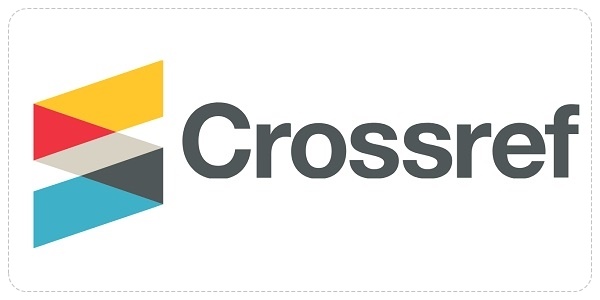Enhancement Quality of HOTS Assessment of Pre-Service Teachers Through Project-Based Learning
Abstract
To fulfill the professionalism of pre-service teachers in the aspect of pedagogic competence, each pre-service teacher will be equipped with knowledge related to the preparation of test instruments including cognitive test instruments based on high-order thinking skills (HOTS) which can be mastered only if students gain real experience regarding the preparation of these instruments through project-based learning. The purpose of this study is to describe the learning process and what projects are produced and describe the level of success. The method used is classroom action research proposed by Kemmis which goes through the stages of planning, action, observation, and reflection. The results of this study are, first; project-based learning that students go through can achieve the expected abilities, namely, students can develop valid and reliable test instruments as well as other supporting documents that support the success of the HOTS-based test instruments that are compiled. Second; Project-based learning has experienced success as indicated by the results of the learning questionnaire and the recapitulation of increased learning outcomes before and after the implementation of project-based learning on the HOTS questions.
Keywords
Full Text:
PDFReferences
Alkamel, M. A. A., & Chouthaiwale, S. S. (2018). The use of ICT tools in English language teaching and learning: A literature review. Journal of English language and literature (JOELL), 5(2), 29-33.
Amini, R., Setiawan, B., Fitria, Y., & Ningsih, Y. (2019). The difference of students learning outcomes using the project-based learning and problem-based learning model in terms of self-efficacy. In Journal of Physics: Conference Series (Vol. 1387, No. 1, p. 012082). IOP Publishing.
Aviory, K., & Susetyowati, MM. E. (2021). Kualitas soal Hots (High Order Thinking Skill) pada siswa SMP Kelas VII. Aksioma: Jurnal Program Studi Pendidikan Matematika, 10(2), 639–647.
Bada, S. O., & Olusegun, S. (2015). Constructivism learning theory: A paradigm for teaching and learning. Journal of Research & Method in Education, 5(6), 66-70.
Britton, E., Simper, N., Leger, A., & Stephenson, J. (2017). Assessing teamwork in undergraduate education: A measurement tool to evaluate individual teamwork skills. Assessment & Evaluation in Higher Education, 42(3), 378-397.
Cahyaningtyas, A. P., Sari, Y., & Pradana, A. B. A. (2020). High Order Thinking Skills: How is it integrated with cognitive assessment?. Jurnal Ilmiah Pendidikan Dasar, 7(2), 109-120.
Chen, C. H., & Yang, Y. C. (2019). Revisiting the effects of project-based learning on students’ academic achievement: A meta-analysis investigating moderators. In Educational Research Review (Vol. 26, pp. 71–81). Elsevier Ltd.
Dewi, P. S. (2021). E-Learning : Penerapan Project Based Learning pada mata kuliah media pembelajaran. PRISMA, 10(1), 97–105.
Epinasti, G., Y. Slamet, S. T., & Yamtinah, S. (2021, September). Teacher's perception towards assessing of Higher Order Thinking Skills (HOTS) in elementary schools. In Proceedings of the 5th International Conference on Learning Innovation and Quality Education (pp. 1-6).
Ferry, M. M. (2021). Project-Based Language Learning: Addressing cultural and linguistic diversity issues in climate action. In Education for Sustainable Development in Foreign Language Learning (pp. 50-64). Routledge.
Gaikhorst, L., Beishuizen, J. J., Zijlstra, B. J. H., & Volman, M. L. L. (2014). Contribution of a professional development programme to the quality and retention of teachers in an urban environment. 38(1), 41–57.
Gomez Johnson, K. M., Schaffer Dr, C. L., Nix, L. E., & Hayden, H. E. (2020). Learning to lesson plan: A mentor’s impact on pre-service teachers. The Nebraska Educator: A Student-Led Journal. 49(5), 1-32.
Grant, R. M., & Baden-Fuller, C. (2018). How to develop strategic management competency: Reconsidering the learning goals and knowledge requirements of the core strategy course. Academy of Management Learning & Education, 17(3), 322-338.
Guo, P., Saab, N., Post, L. S., & Admiraal, W. (2020). A review of project-based learning in higher education: Student outcomes and measures. International journal of educational research, 102(2020), 11-13.
Handayani, G. (2018.). Efektivitas model pembelajaran berbasis proyek pada mata kuliah pengelolaan laboratorium terhadap kreativitas mahasiswa PGMI STIT Al Hilal. Jurnal Eksperimental : Media Ilmiah Pendidikan Guru Madrasah Ibtidaiyah. 7(1), 25-32.
Hardiansyah, F., AR, M. M., & Hidayatillah, Y. (2022). Development Of IPAS Learning Assessment To Measure Science Process Skill In Elementary School. International Journal of Elementary Education, 6(4), 612-623.
Haswindy, S. (2018). Peningkatan kompetensi profesional dan pedagogik guru SMA di Provinsi Jambi. Khazanah Intelektual, 2(2), 202-218.
Hujjatusnaini, N., Corebima, A. D., Prawiro, S. R., & Gofur, A. (2022). The effect of blended project-based learning integrated with 21st-century skills on pre-service biology teachers' higher-order thinking skills. Jurnal Pendidikan IPA Indonesia, 11(1), 104-118.
Jonassen, D. H., & Carr, C. S. (2020). Mindtools: Affording multiple knowledge representations for learning. In Computers as cognitive tools (pp. 165-196). Routledge.
Kartowagiran, B., & Rohaeti, E. (2021). A Critical Thinking Assessment Model Integrated with Science Process Skills on Chemistry for Senior High School. European Journal of Educational Research, 10(1), 285-298.
Keith, J. F., Stastny, S. N., & Brunt, A. (2016). Barriers and strategies for success for American Indian college students: A review. Journal of College Student Development, 57(6), 698-714.
Kemmis, S. (2021). Improving education through action research. In Action research for change and development (pp. 57-75). Routledge.
Kim, L. E., Jörg, V., & Klassen, R. M. (2019). A meta-analysis of the effects of teacher personality on teacher effectiveness and burnout. Educational psychology review, 31, 163-195.
Paidi, P., Mercuriani, I. S., & Subali, B. (2020). Students' competence in cognitive process and knowledge in biology based on curriculum used in Indonesia. International Journal of Instruction, 13(3), 491-510.
Powell, C. G., & Bodur, Y. (2016). Professional development for quality teaching and learning: A focus on student learning outcomes. In Handbook of research on professional development for quality teaching and learning (pp. 652-677). IGI Global.
Putri, H., Susiani, D., Wandani, N. S., & Putri, F. A. (2022). Instrumen penilaian hasil pembelajaran kognitif pada tes uraian dan tes objektif. Jurnal Papeda: Jurnal Publikasi Pendidikan Dasar, 4(2), 139-148.
Riadi, A., & Atini, N. L. (2018). Soal pilihan ganda yang valid dan reliabel untuk menginterpretasikan keterampilan berpikir siswa SMP. Math Didactic: Jurnal Pendidikan Matematika, 4(3), 220-225.
Saraswati, Y., Indana, S., & Sudibyo, E. (2021). Science literacy profile of junior high school students based on knowledge, competence, cognitive, and context aspects. IJORER: International Journal of Recent Educational Research, 2(3), 329-341.
Susanto, S., Desrani, A., Ritonga, A. W., & Rubiyantoro, Y. (2022). Improving students’ creative thinking in learning arabic through HOTS based project based learning model. An Nabighoh, 24(1), 1-16.
Vitiarti. (2022). Peningkatan kompetensi pedagogik guru dalam menyusun kisi- kisi soal pilihan ganda melalui supervisi akademik dengan metode in- house training. DWIJA CENDEKIA: Jurnal Riset Pedagogik, 6(3), 612–625.
Vogler, J. S., Thompson, P., Davis, D. W., Mayfield, B. E., Finley, P. M., & Yasseri, D. (2018). The hard work of soft skills: Augmenting the project-based learning experience with interdisciplinary teamwork. Instructional Science, 46(3), 457–488.
Widana, W. (2017). Modul penyusunan soal Higher Order Thinking Skills (HOTS). Kemdikbud.
Willegems, V., Consuegra, E., Struyven, K., & Engels, N. (2018). Pre-service teachers as members of a collaborative teacher research team: A steady track to extended professionalism? Teaching and Teacher Education, 76(3), 126–139.
Winingsih, L. H., & Sulistiono, A. A. (2020). Factors influencing the principal’s leadership and its impact on learning quality and learning outcome. Journal of Educational and Social Research, 10(2), 143-156.
Zaki, M., Amalia, R., & Sofyan, S. (2020, April). Development of high order thinking skills (HOTS) test instrument on exponent for junior high school students. In Journal of Physics: Conference Series (Vol. 1521, No. 3, p. 032096). IOP Publishing.
DOI: https://doi.org/10.17509/pdgia.v21i1.55996
Refbacks
- There are currently no refbacks.
INDEXED BY

This work is licensed under a Creative Commons Attribution-ShareAlike 4.0 International License
















